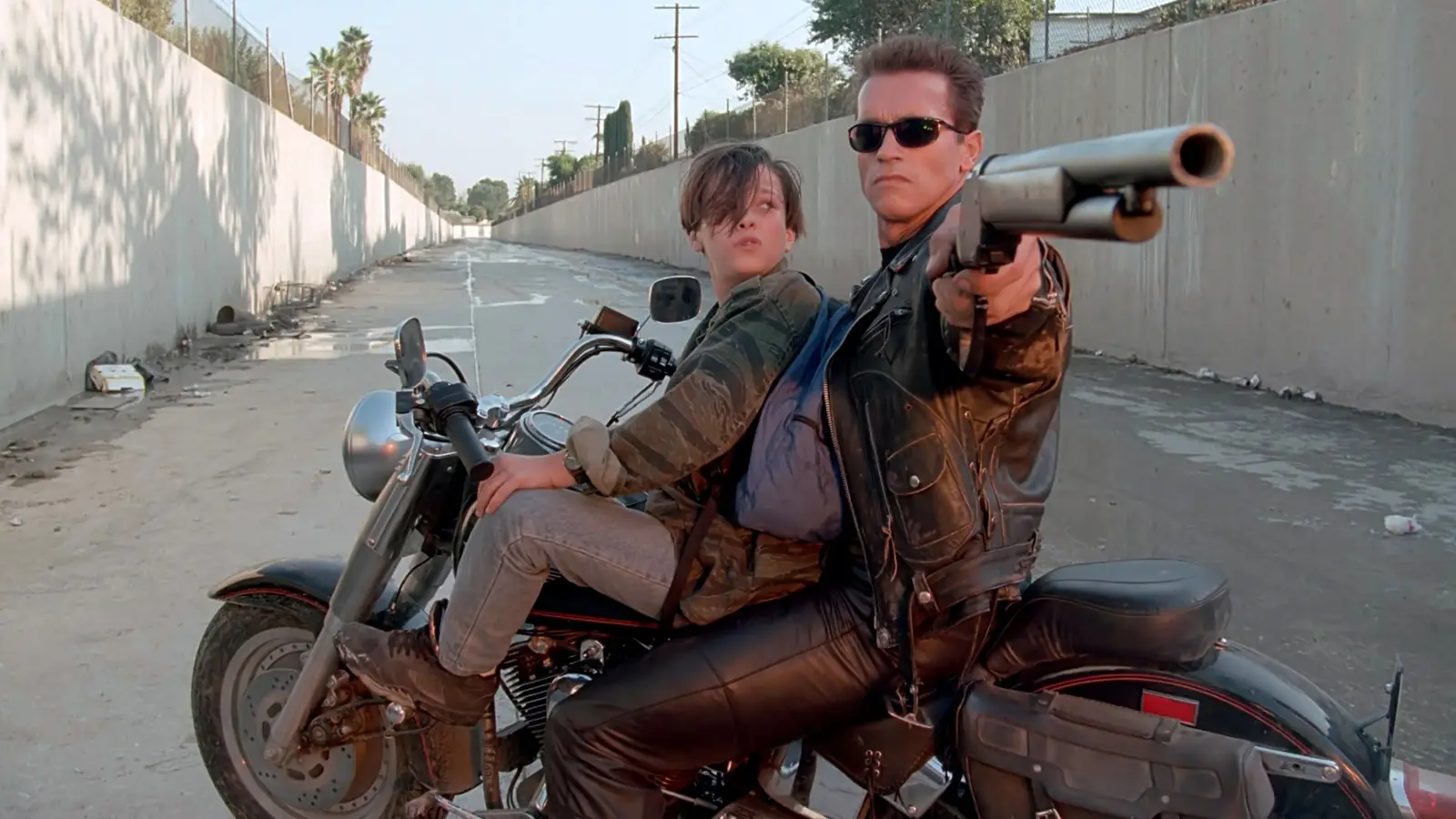Copyright Screen Rant

Star Wars might be the premiere franchise in sci-fi, but there are some science fiction films that actually blow the Star Wars movies out of the water. When Star Wars released in 1977, it created a pop culture phenomenon, and George Lucas' sci-fi/fantasy epic inspired tons of imitators throughout the ensuing decades. Taking a page from classic film serials, Star Wars embodied concepts from action movies and even fantasy to create a mixture that had never been seen on the big screen before. While this made the franchise wildly popular, its disparate elements also take away from its science fiction credibility. In many ways, Star Wars is more fantasy than sci-fi. Science fiction is all about imagining what's possible, and there are a host of classic movies that fulfill that idea more than Star Wars. Though no film can touch the wonder and magic of George Lucas' creation, some have actually passed the legendary franchise in terms of quality and commitment to science fiction concepts. The Thing (1982) 1982 was an incredibly busy year for science fiction, and one of the greatest sci-fi horror films slipped by with little fanfare. John Carpenter's The Thing re-imagines the classic '50s film, and tells the story of an arctic research base besieged by a shapeshifting alien. Bleak and claustrophobic, The Thing is legitimately terrifying. While it's more of an acquired taste compared to the Star Wars franchise, The Thing is more quintessentially science fiction. It examines the consequences of man's tampering with nature, and it also explores extra-terrestrial life that isn't so friendly. While scaring the pants off the viewer, it subtly explores deeper themes. Edge Of Tomorrow (2014) Edge of Tomorrow, was a box office disappointment, but it's become one of the most underrated sci-fi films in recent memory. Tom Cruise plays a soldier who is enlisted to fight alien foes using a time loop to learn from his mistakes each time he dies. Perfectly balancing heady sci-fi with overt action, Edge of Tomorrow is just fun. According to Box Office Mojo, Edge of Tomorrow grossed $380 million against a $178 million budget. In that way, the 2014 film is similar to Star Wars, except all the action in the former is in service of something a bit deeper. Edge of Tomorrow makes commentary about the dehumanizing effects of war, though it never gets too bogged down in its own messaging. It also uses tried-and-true sci-fi concepts in new and interesting ways. Star Trek II: The Wrath Of Khan (1982) The age-old debate between Star Trek and Star Wars will likely never end, but Star Trek II: The Wrath of Khan has a lot that its competing franchise lacks. Kirk and company are attacked by their former adversary, Khan, whose quest for revenge threatens the lives of the entire crew. Underneath the tense battle is a story about aging. For the first time in the Star Trek franchise, Kirk is put in a situation he can't win, and his true character shines through. The depth and richness of storytelling is accentuated by distinct literary references, and The Wrath of Khan is a cinematic gem as well as an exciting sci-fi adventure. That level of depth isn't really found in the Star Wars movies. Terminator 2: Judgement Day (1991) Terminator 2: Judgement Day followed up its predecessor by adding a dose of action, and it's still one of the best sequels in history. The T-800 is sent back in time again, this time to protect John Connor as a tween from a new and deadlier terminator. It has a completely different tone, but it's excellent in its own ways. No Star Wars film can hold a candle to the bombastic action of Terminator 2, and it does hard sci-fi better as well. The time travel aspects might be a bit convoluted, but at least the films don't try to explain anything away using magic. Terminator 2 is grounded without sacrificing a single ounce of its pulse-pounding excitement. Aliens (1986) Following up one of the scariest sci-fi horror films of all time was tricky, so 1986's Aliens went in an entirely new direction. The sequel follows Ripley as she falls in with a band of space marines who do battle with hordes of Xenomorphs. Though the film has some horror elements, Aliens is enhanced by pure, unfiltered action. Like other films in James Cameron's canon, Aliens just does action better than the Star Wars universe, largely because of the stakes. Every character is in mortal danger at all times, and the threat seems real because of how the Xenomorph was set up in Alien. Also, the universe of Alien isn't as black-and-white as the Star Wars mythos. Back To The Future (1985) Back to the Future is one of the few sci-fi movies to capture the spirit of whimsy and adventure of the Star Wars franchise. Marty McFly travels back to 1955, and accidentally prevents his parents from falling in love. Once the time travel is finished, Back to the Future is an exciting comedy with a lot of heart. The 1985 gem isn't all that different from Star Wars, and they both use their respective genres as a backdrop for classic cinematic storytelling. However, Back to the Future offers a wider variety of tones and emotions, and is more rewarding when analyzed that way. Star Wars is fun, but Back to the Future is even more so. Arrival (2016) Star Wars wouldn't be described as heady science fiction, but movies like Arrival are certainly much more cerebral. When alien spaceships arrive all around the globe, a linguistic expert is tasked with deciphering their message before humanity spirals into chaos. Underneath all the accoutrements, Arrival is essentially a story about communication. That sort of fundamental storytelling element is largely lacking in the Star Wars universe, and it misses the point of the sci-fi genre. Arrival's stunning visuals and well-told story are important, but it's the themes that make it such a great film. It may not be as widely appealing as Star Wars, but it offers something more. Interstellar (2014) Christopher Nolan's Interstellar dives headfirst into some of the most complex sci-fi in movie history, but the human element isn't lacking. Astronauts are dispatched through a wormhole to examine three possible candidates for an Earth relocation colony. The movie's mind-bending exploration of time is where the story's heart lies. In the movie, space is mysterious and dangerous, and in that way it remains grounded in fact. Though the other sci-fi is a bit outlandish, it doesn't explain certain details with magic like Star Wars. Interstellar has a lot of credibility as a bona fide science fiction epic, but it's also an engrossing drama that doesn't forget its characters. Blade Runner (1982) Ridley Scott's Blade Runner didn't find its intended audience when it first released, but the cult classic soon dropped the cult and just became classic. Deckard hunts down rogue synths, but a group of escaped androids leads the cop down a mysterious path. The movie's noir-drenched visuals combine classic atmosphere with brilliantly subtle sci-fi touches. Blade Runner is all atmosphere, and it does that better than all the Star Wars movies combined. It doesn't necessarily hand-hold the audience through the story, and its ambiguity is part of its charm. There's an idealism to Star Wars that Blade Runner completely eschews, which better represents the time in which it was made. 2001: A Space Odyssey (1968) Stanley Kubrick's 2001: A Space Odyssey is one of the best sci-fi films of all time, and it blazed a trail that Star Wars would later walk. The entirety of human history is explored through the machinations of mysterious black monoliths that spur leaps in evolution. With its groundbreaking effects and stunning sound design, 2001: A Space Odyssey is perfect.



